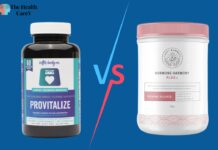If you’ve ever experienced bloating, you know how uncomfortable and frustrating it can be. Bloating can be caused by a variety of factors, including poor diet, stress, and digestive issues. While there are many remedies out there that claim to help with bloating, one that has gained popularity in recent years is kombucha.
Kombucha is a fermented tea that has been consumed for centuries for its health benefits. It is made by fermenting tea with a symbiotic culture of bacteria and yeast, which creates a fizzy, slightly sour drink. Kombucha has been touted for its ability to aid in digestion, boost the immune system, and improve overall health. But does it really help with bloating?
Key Takeaways
- Kombucha is a fermented tea that has been consumed for centuries for its health benefits.
- While kombucha has been touted for its ability to aid in digestion and improve overall health, there is limited scientific evidence to support its effectiveness in reducing bloating.
- If you’re looking to use kombucha to help with bloating, it’s important to do so in moderation and talk to your doctor if you have any concerns.
Does Kombucha Help with Bloating?
Bloating is a common digestive issue that many people experience. It can be caused by various factors such as eating too quickly, consuming gas-producing foods, or having an underlying medical condition. Kombucha is a fermented tea that has gained popularity for its potential health benefits, including aiding with bloating.
Kombucha contains probiotics, which are live microorganisms that can help improve gut health. These probiotics can help break down food and reduce gas production in the digestive system, potentially reducing bloating. Additionally, kombucha is known to contain enzymes that can aid in digestion and improve nutrient absorption.
However, it’s important to note that not all kombucha is created equal. Some brands may contain added sugars or artificial flavors, which can actually worsen digestive issues. It’s important to choose a high-quality, organic kombucha that has been properly fermented to ensure maximum health benefits.
While there is some evidence to suggest that kombucha may help with bloating, more research is needed to fully understand its effects on digestive health. It’s always best to consult with a healthcare professional before adding any new supplements or foods to your diet, especially if you have underlying medical conditions or take medications that may interact with kombucha.
In summary, kombucha may have the potential to help with bloating due to its probiotic and enzyme content. However, it’s important to choose a high-quality, organic brand and consult with a healthcare professional before adding it to your diet.
The Science Behind Kombucha and Bloating
If you’re someone who frequently experiences bloating, you may be wondering if kombucha can help alleviate your symptoms. While there is limited scientific research on the topic, some evidence suggests that kombucha may have beneficial effects on digestive health.
Probiotic Content
One of the main reasons why kombucha is thought to be helpful for bloating is due to its probiotic content. Probiotics are live microorganisms that are believed to improve gut health by restoring the natural balance of bacteria in your digestive system.
Kombucha contains a variety of probiotics, including lactic acid bacteria and acetic acid bacteria. These probiotics have been shown to improve digestion and reduce inflammation in the gut, which may help alleviate bloating.
Digestive Enzymes
In addition to probiotics, kombucha also contains digestive enzymes. These enzymes are responsible for breaking down the food you eat, making it easier for your body to absorb nutrients and reduce the likelihood of bloating.
Some of the digestive enzymes found in kombucha include amylase, protease, and lipase. These enzymes are important for breaking down carbohydrates, proteins, and fats, respectively.
While more research is needed to fully understand the effects of kombucha on bloating, the probiotics and digestive enzymes found in this fermented tea may have potential benefits for digestive health.
Benefits of Kombucha for Bloating
If you’re someone who struggles with bloating, you may be interested in learning about the potential benefits of drinking kombucha. While more research is needed to fully understand the effects of kombucha on bloating, there are a few reasons why it may be helpful.
First, kombucha contains probiotics, which are beneficial bacteria that live in your gut. These bacteria can help improve digestion and reduce inflammation, which may in turn help reduce bloating.
In addition to probiotics, kombucha also contains enzymes that can help break down certain types of food. This can be especially helpful if you’re someone who struggles with digesting certain foods, which can lead to bloating.
Finally, kombucha is a low-calorie beverage that can help you stay hydrated. Staying hydrated is important for overall digestive health, and can help reduce bloating as well.
Overall, while more research is needed to fully understand the effects of kombucha on bloating, there are several reasons why it may be helpful. If you’re interested in trying kombucha for yourself, be sure to choose a high-quality brand and start with a small amount to see how your body responds.
How to Use Kombucha for Bloating
If you’re interested in using kombucha to help with bloating, there are a few things to keep in mind. Here are some tips for getting the most out of this fermented tea:
- Start slowly: If you’re new to kombucha, it’s best to start with a small amount and gradually increase your intake. This can help your body adjust to the probiotics and prevent any digestive discomfort.
- Choose the right type: Look for kombucha that contains live cultures and is free from added sugars or artificial flavors. You can also try making your own kombucha at home using a SCOBY (symbiotic culture of bacteria and yeast).
- Drink regularly: To see the most benefits, it’s important to drink kombucha regularly. Aim for one to two servings per day, but listen to your body and adjust your intake as needed.
- Combine with other remedies: Kombucha can be a helpful addition to other remedies for bloating, such as peppermint tea, ginger, or probiotic supplements. Experiment to find what works best for you.
Overall, kombucha can be a great addition to a healthy diet and lifestyle, but it’s important to use it as part of a holistic approach to wellness. Remember to listen to your body and consult with a healthcare professional if you have any concerns.

Potential Side Effects of Kombucha
While kombucha is often touted as a health elixir, it’s important to note that there are potential side effects associated with its consumption. Here are a few things to keep in mind:
1. Allergic Reactions
Kombucha is made from a variety of ingredients, including tea, sugar, and yeast. Some people may have allergies to one or more of these components, which could lead to an allergic reaction. Symptoms of an allergic reaction may include hives, difficulty breathing, and swelling of the face, lips, tongue, or throat. If you experience any of these symptoms after consuming kombucha, seek medical attention immediately.
2. Digestive Issues
While some people may find that kombucha helps with bloating and other digestive issues, others may experience the opposite effect. Kombucha is a fermented beverage, which means it contains probiotics and other bacteria that can help promote gut health. However, consuming too much kombucha or drinking it too quickly can lead to digestive discomfort, such as bloating, gas, and diarrhea.
3. Interference with Medications
Kombucha contains a variety of organic acids, including acetic acid, which can interfere with the absorption of certain medications. If you’re taking any prescription medications, it’s important to talk to your doctor before consuming kombucha to make sure there won’t be any negative interactions.
4. Contamination
Because kombucha is made through a fermentation process, there is a risk of contamination if proper hygiene practices are not followed. Contaminated kombucha can lead to serious health problems, including infections and even death. To reduce the risk of contamination, make sure to only purchase kombucha from reputable sources and store it properly.
Overall, while kombucha can have potential health benefits, it’s important to be aware of the potential side effects and to consume it in moderation. If you have any concerns about whether kombucha is right for you, talk to your doctor or a qualified healthcare professional.
Conclusion
While kombucha has been touted as a cure-all for various ailments, its effectiveness in treating bloating is not yet fully understood. Some studies have shown that kombucha can improve digestion and reduce inflammation, which may lead to reduced bloating. However, more research is needed to confirm these findings.
If you suffer from bloating, it may be worth trying kombucha as a natural remedy. Keep in mind that not all kombucha brands are created equal, and some may contain high levels of sugar or alcohol, which can exacerbate bloating. Look for brands that are low in sugar and alcohol and contain live cultures and probiotics.
In addition to consuming kombucha, there are other steps you can take to reduce bloating, such as avoiding carbonated drinks, chewing your food thoroughly, and eating slowly. If your bloating persists or is accompanied by other symptoms, it’s important to consult a healthcare professional to rule out any underlying health conditions.
Frequently Asked Questions
Can drinking kombucha reduce bloating?
Kombucha is believed to contain probiotics that can help improve gut health, which may reduce bloating. However, there is limited scientific evidence to confirm this claim. Some people may experience relief from bloating after drinking kombucha, while others may not notice any difference.
Is kombucha effective for IBS symptoms?
There is no scientific evidence to suggest that kombucha is effective for treating IBS symptoms. However, some people with IBS may find that drinking kombucha helps to improve their symptoms. If you have IBS, it’s important to talk to your doctor before trying any new treatments.
Can kombucha help with inflammation?
Kombucha contains antioxidants, which can help to reduce inflammation in the body. However, there is limited scientific evidence to support the claim that kombucha can help with inflammation. If you are looking for natural ways to reduce inflammation, you may want to consider adding more anti-inflammatory foods to your diet.
What are the best foods to reduce bloating?
Some of the best foods to reduce bloating include ginger, peppermint, fennel, pineapple, and yogurt. These foods can help to improve digestion and reduce inflammation in the gut. It’s important to listen to your body and avoid foods that trigger bloating for you.
Does kombucha cause excessive gas?
Kombucha contains live bacteria and yeast, which can produce gas as they ferment the tea. Some people may experience excessive gas after drinking kombucha, while others may not notice any difference. If you are prone to gas, you may want to start with a small amount of kombucha and gradually increase your intake.
Can kombucha help with constipation?
Kombucha contains probiotics, which can help to improve gut health and promote regular bowel movements. However, there is limited scientific evidence to support the claim that kombucha can help with constipation. If you are experiencing constipation, it’s important to talk to your doctor before trying any new treatments.
Also Read:
How to Heal Cracked Lip Corners Fast






















